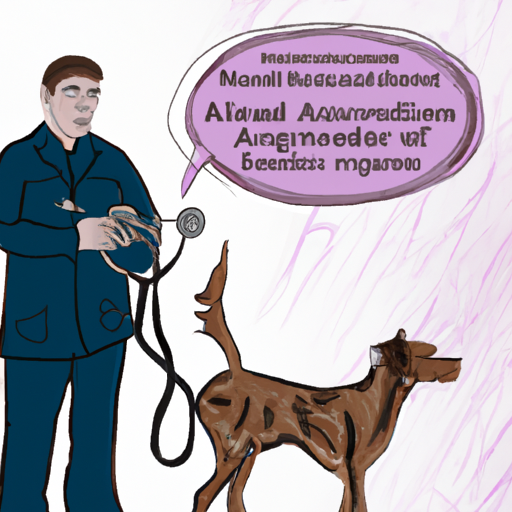Understanding Addison’s Disease
As a caregiver, it’s important to understand what Addison’s Disease is before we delve into the underlying causes. Addison’s Disease, also known as hypoadrenocorticism, is an endocrine disorder that occurs when your dog’s adrenal glands fail to produce enough hormones for normal function. These hormones – cortisol and aldosterone – play a vital role in managing stress, maintaining blood pressure, and regulating the metabolism of salt and water in your dog’s body.
The Causes of Addison’s Disease
There are several potential causes of Addison’s disease in dogs. Most commonly, it’s the result of damage to the adrenal glands. This can happen due to:
- Autoimmune disease: The dog’s immune system mistakenly attacks its own adrenal glands, leading to damage.
- Infections: Certain infections can damage the adrenal glands.
- Cancer: In some cases, cancer can spread to the adrenal glands.
- Medications: Some drugs used to treat Cushing’s disease, another disorder of the adrenal glands, can lead to Addison’s disease if not properly managed.
Recognizing the Symptoms of Addison’s Disease
As a caregiver, you play a crucial role in early detection. The symptoms of Addison’s disease in dogs can be subtle and easy to overlook. They may include:
- Lack of appetite
- Vomiting
- Weakness or lethargy
- Weight loss
- Increased thirst and urination
If you notice these symptoms in your dog, it’s crucial to consult with your vet immediately.
Diagnosis and Treatment of Addison’s Disease
Diagnosing Addison’s disease involves a series of tests. Your vet may perform:
- Blood tests: To check for low sodium and high potassium levels.
- Urinalysis: To look for signs of kidney damage.
- ACTH stimulation test: This is the definitive test for Addison’s disease. It measures the adrenal glands’ response to the hormone ACTH.
If your dog is diagnosed with Addison’s disease, the treatment will involve hormone replacement therapy to bring the hormone levels back to normal. Regular check-ups will also be necessary to monitor the condition.
| Test | Purpose |
|---|---|
| Blood tests | Check for low sodium and high potassium levels |
| Urinalysis | Look for signs of kidney damage |
| ACTH stimulation test | Measure the adrenal glands’ response to ACTH |
Preventing Addison’s Disease
Unfortunately, there’s no proven way to prevent Addison’s disease in dogs. However, regular vet check-ups and prompt attention to any changes in your dog’s health can lead to early detection and treatment, which can significantly improve your dog’s prognosis.
FAQs
1. What breeds are more prone to Addison’s disease?
While any breed can develop Addison’s disease, it’s more common in certain breeds such as Standard Poodles, West Highland White Terriers, and Portuguese Water Dogs.
2. Can Addison’s disease be cured?
There’s no cure for Addison’s disease, but it can be managed with lifelong medication.
3. How long can a dog live with Addison’s disease?
With proper management, dogs with Addison’s disease can live a normal lifespan.
4. Is Addison’s disease contagious?
No, Addison’s disease is not contagious. It cannot be transmitted from one dog to another.
5. What’s the cost of treating Addison’s disease?
The cost can vary depending on the severity of the disease and the specific treatment plan. It’s best to discuss this with your vet.



